::::::::::::::::::::::::::::::::::::::::::::::::::::::::::::::::::::::::::::::::::::::::::::::::::::::::::::::::::::::::::
ビルマの竪琴 (Japan)
 |
|
缅甸的竖琴 (日本) The Burmese Harp |
|
且美且痛 |
|
Beautiful but bitter |
Director: Kon Ichikawa
Cast: Rentarô Mikuni Kô Nishimura Taketoshi Naitô
Footage: 116min
Year: 1956
导演: 市川昆
主演: 三国连太郎 西村晃 内藤武敏
片长: 116分钟
出品时间: 1956
An adaptation of Michio Takeyama's antiwar novel.
During the final days of WWII in Burma, a Japanese platoon hangs on. Its leader is a sensitive and musical captain. The soldiers sing nostalgic songs to keep their spirit up, inspired by their self taught Burmese harp player, scout Private Mizushima.
When the war finally ends, the platoon is taken to Mudon prison camp to prepare for repatriation. Soon Mizushima is sent on a lone mission to persuade a trapped Japanese battalion to surrender. After they refuse, the British attack, the mountain garrison is wiped out, and Mizushima is badly wounded. Fortunately he is nursed back to health by a Buddhist monk.
When Mizushima leaves for the camp, he disguises himself as a Buddhist monk. En route to Mudon, the frequent sight of dead soldiers overwhelms Mizushima. He is so shocked with the needless suffering of war, that he has a spiritual transformation and gradually becomes a man of the cloth. He will bury all the Japanese soldiers properly who died in Burma. So he decides to remain there even after his platoon begs him to return home with them.
The film was remade in color by Kon Ichikawa in 1985.
根据竹山道雄的反战小说改编。
第二次世界大战接近尾声,在缅甸有一小股日本军队在苦苦支撑。它的长官是一个感性而且懂音乐的队长。士兵们靠合唱思乡曲来保持士气,这是自学缅甸竖琴的侦察兵水岛的提议。
战争终于结束,这支部队被带往木冬战俘营,等待被遣返。随后水岛接到一项任务,去劝一支受困的日军部队投降。对方没有接受劝降,英军发起进攻,山上的守军被清剿,水岛也身受重伤。幸运的是一位禅师将他治愈。
水岛起身前往军营时将自己打扮成了僧侣的模样。在去木冬的路上,水岛经常目睹阵亡士兵的尸体,战争所带来的不必要的痛苦令他深受震动。他的内心发生了转变,变得越来越跟身上的僧衣相一致。他要将死于缅甸的所有日本士兵妥善安葬。所以他决定留下来,甚至战友的恳求都不能改变他的意志。
市川昆曾于1985年将该电影重拍成彩色片。
|
电影在线 Film online |
|
|
个人观感 Personal rate |
|
|
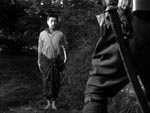 |
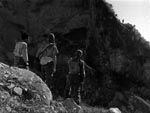 |
 |
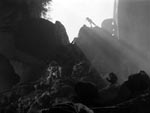 |
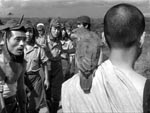 |
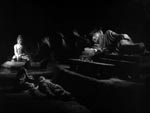 |
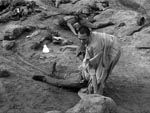 |
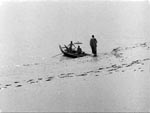 |
 |
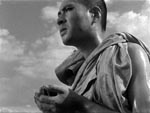 |
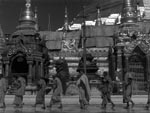 |
 |
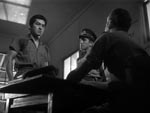 |
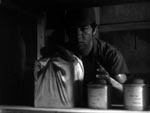 |
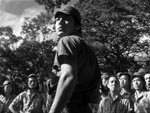 |
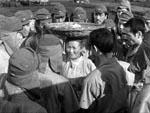 |
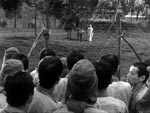 |
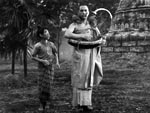 |
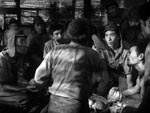 |
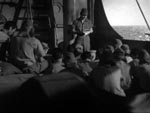 |
附 录
Appendixes
|
Oct. 12, 2011 |